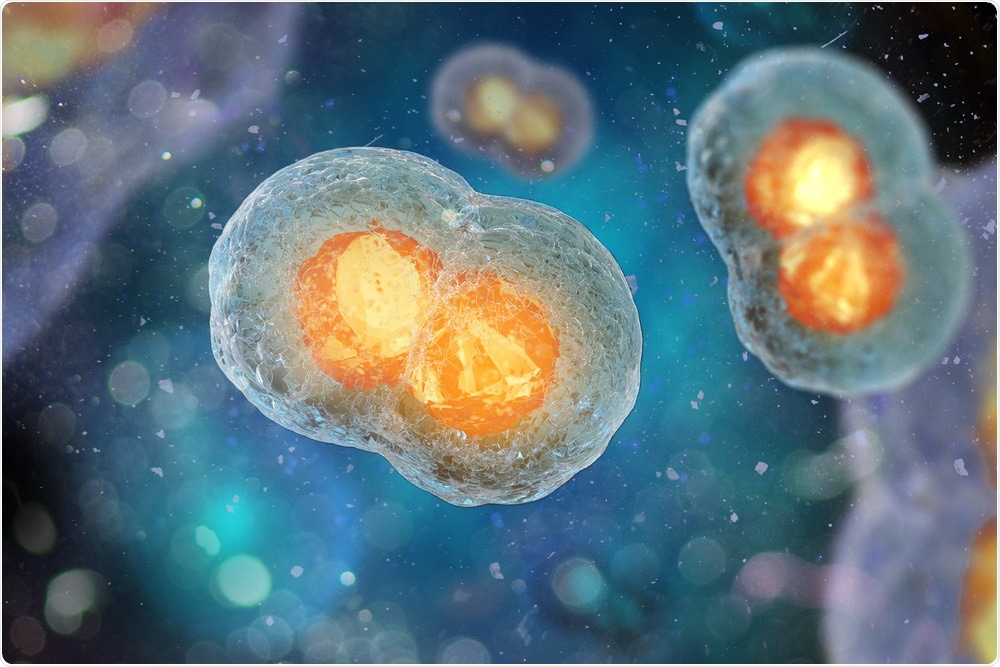A new study by scientists from the University of Kent’s School of Biosciences and the University of Manchester has unraveled a crucial mechanism that coordinates the processes of cell division and adhesion in humans.

Cell Division. Image Credit: Andrii Vodolazhskyi/Shutterstock.com
This breakthrough is highly promising to gain insights into cell adhesion signaling in the progression and metastasis of cancerous tumors.
Reported in the Journal of Biological Chemistry, the study identifies the long-awaited link within the cell cycle between the mechanism for cell division—the proliferation of cells that allows all living organisms to function and regenerate—and the cell adhesion that holds the cells in the accurate position inside the organism’s structure.
If cell division must occur within humans, the cell ought to release its adhesions to the surroundings at the moment the cell begins to divide. Such synchronization of the cell cycle and the cell adhesion is crucial for the proper functioning of cells in tissues and to inhibit uncontrolled cell division in processes like cancer.
Scientists identified that CDK1, the master cell cycle regulator, attaches directly to and alters the core protein talin, which is vital for the cell adhesion process. This interaction denotes a coupling of the cell adhesion and proliferation processes. This refers to a unifying mechanism through which the cell division and adhesion processes are regulated.
The identification of the initial mechanism of this crucial process in human tissues is the first step in a new area of understanding health issues associated with the cell cycle, such as cancerous tumors.
The potential of this discovery is huge as it provides a new understanding of how cell division is coordinated within the confines of a complex multicellular organism. Cell division needs to be tightly coupled to the cell adhesion to allow our cells to divide without disrupting the integrity of our tissues and organs. This research is vital in our understanding of other cellular diseases and of cancer’s ability to spread within the human body.”
Dr Ben Goult, Reader in Biochemistry, University of Kent
Dr. Goult is also a Principal Investigator of the study.
Source:
Journal reference:
Gough, R. E., et al. (2021) Talin mechanosensitivity is modulated by a direct interaction with cyclin-dependent kinase-1. Journal of Biological Chemistry. doi.org/10.1016/j.jbc.2021.100837.